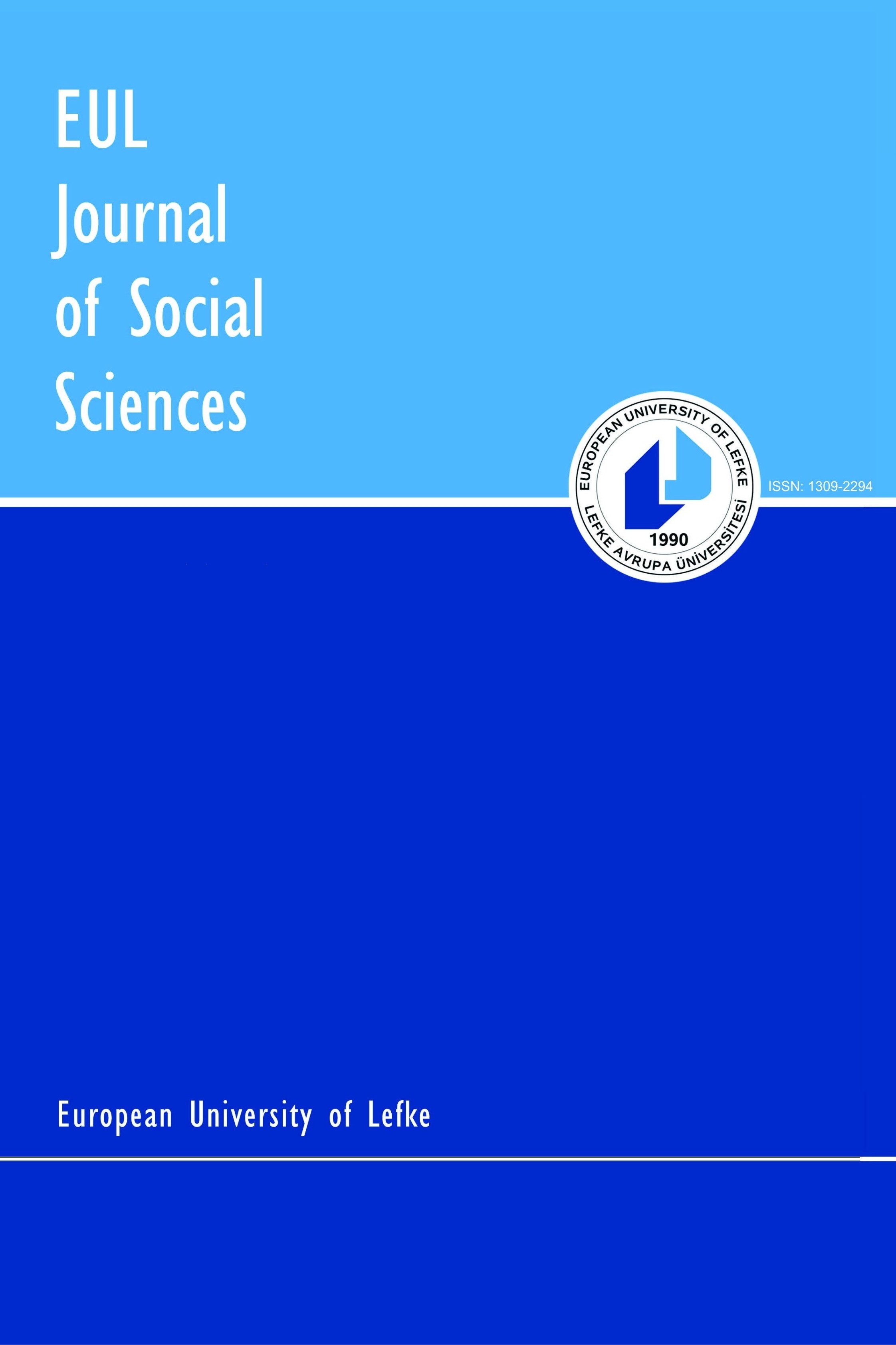BANK TRUST AMONG UNIVERSITY STUDENTS IN UZBEKISTAN
Abstract: The purpose of this research is to analyze the factors affecting bank trust among the young generation in Uzbekistan. 216 questionnaires filled by students at a university in Uzbekistan were evaluated. The average bank trust was 4.08 out of 5, indicating that students often trust their banks in Uzbekistan. The most important factor affecting bank trust is customer transparency, followed by value congruence and financial literacy. The percentage of cumulative variance explained by these three factors is 78.26%. Transparency, value congruence and financial literacy variables are regressed against bank trust. The results show that the relationships between transparency and bank trust and value congruence and bank trust are positive and significant. The relationship between financial literacy and bank trust, on the other hand, is negative. Furthermore, increasing bank trust leads to an increase in bank loyalty among university students in Uzbekistan.
Anahtar Kelimeler:
Trust, banks, Uzbekistan
BANK TRUST AMONG UNIVERSITY STUDENTS IN UZBEKISTAN
Abstract: The purpose of this research is to analyze the factors affecting bank trust among the young generation in Uzbekistan. 216 questionnaires filled by students at a university in Uzbekistan were evaluated. The average bank trust was 4.08 out of 5, indicating that students often trust their banks in Uzbekistan. The most important factor affecting bank trust is customer transparency, followed by value congruence and financial literacy. The percentage of cumulative variance explained by these three factors is 78.26%. Transparency, value congruence and financial literacy variables are regressed against bank trust. The results show that the relationships between transparency and bank trust and value congruence and bank trust are positive and significant. The relationship between financial literacy and bank trust, on the other hand, is negative. Furthermore, increasing bank trust leads to an increase in bank loyalty among university students in Uzbekistan.
Keywords:
Trust, banks, Uzbekistan,
___
- Alamsyah, H., Ariefianto, M. D., Saheruddin, H., Wardono, S., &Trinugroho, I. (2020). “Depositors’ Trust: Some Empirical Evidence from Indonesia”, Research in International Business and Finance, 54: 101251.
- Arrow, K. J. (1972). “Gifts and exchanges”, Philosophy and Public Affairs, 1: 343-62.
- Calderón, C., Chong, A., & Galindo, A. (2002). “Development and Efficiency of the Financial Sector and Links with Trust: Cross-country Evidence”, Economic Development and Cultural Change, 51(1): 189-204.
- Carbó-Valverde, S., Maqui-López, E., & Rodríguez-Fernández, F. (2013, August) “Trust in Banks: Evidence from the Spanish financial crisis”. In 26th Australasian Finance and Banking Conference.
- Cbu.uz, (2020). History of the Banking System. (19.08.2021), https://cbu.uz/ru/about/history/. Retrieved: 12.8.2021. Field, A. (2014). Discovering statistics using IBM SPSS Statistics. Sage.
- Fungáčová, Z., Hasan, I., & Weill, L. (2019) “Trust in Banks”, Journal of Economic Behavior and Organization, 157: 452-476.
- Guiso, L., Sapienza, P., & Zingales, L. (2008). “Trusting the Stock Market”. the Journal of Finance, 63(6): 2557-2600.
- Hutcheson, G., and Sofroniou, N. (1999). The Multivariate Social Scientist. London: Sage.
- Jansen, D. J., Mosch, R. H., & van der Cruijsen, C. A. (2015). “When Does the General Public Lose Trust in Banks?”, Journal of Financial Services Research, 48(2): 127-141.
- Järvinen, R. A. (2014). “Consumer trust in banking relationships in Europe”. International Journal of Bank Marketing, 32(6): 551-66.
- Kersting, L. M., Marley, R. N., & Mellon, M. J. (2015). “The Association Between Financial Literacy and Trust in Financial Markets Among Novice Nonprofessional Investors”. Academy of Accounting and Financial Studies Journal, 19(3): 201.
- Knell, M., & Stix, H. (2015). “Trust in Banks During Normal and Crisis Times—evidence from survey data”. Economica, 82: 995-1020.
- Pirson, M., & Malhotra, D. K. (2008). “Unconventional Insights for Managing Stakeholder Trust”, Harvard Business School NOM Working Paper, (08-057).
- Sapienza, P., & Zingales, L. (2012). “A Trust Crisis”. International Review of Finance, 12(2): 123-131.
- Sayıl, E. M., Akyol, A., & Gölbaşı Şimşek, G. (2019). “An Integrative Approach to Relationship Marketing, Customer Value, and Customer Outcomes in the Retail Banking Industry: A Customer-Based Perspective from Turkey”. The Service Industries Journal, 39(5-6): 420-461.
- Schumann, J.H., von Wangenheim, F., Stringfellow, A., Yang, Z., Praxmarer, S., Jiménez, F.R., Blazevic, V., Shannon, R.M., Shainesh, G. and Komor, M. (2010).
- ISSN: 1309-2294
- Yayın Aralığı: Yılda 2 Sayı
- Başlangıç: 2010
- Yayıncı: Lefke Avrupa Üniversitesi
Sayıdaki Diğer Makaleler
THE PSYCHOANALYTIC ROOTS OF HOARDING BEHAVIOR: A REVIEW OF THE LITERATURE
BATI TRAKYA MÜSLÜMAN-TÜRK AZINLIĞININ ULUSLARARASI HUKUKTAN DOĞAN EĞİTİM HAKLARI
EXPLAINING THE ADOPTION OF EV POLICIES IN OIL-RICH COUNTRIES
Yedidia Owusu ACHIAW, Direnç KANOL
1974-2017 ARASI KUZEY KIBRIS TÜRK CUMHURİYETİ’NİN SİYASİ HAYATI
BANK TRUST AMONG UNIVERSITY STUDENTS IN UZBEKISTAN
Adekunle Sunday ADEOGUN, Yusuf NASIDI, Olalekan Tolulope B., ADULOJU
SAĞLIKLI AİLE ÖLÇEĞİ: KISA VE UZUN FORMUNUN TÜRKÇE’YE UYARLANMASI
